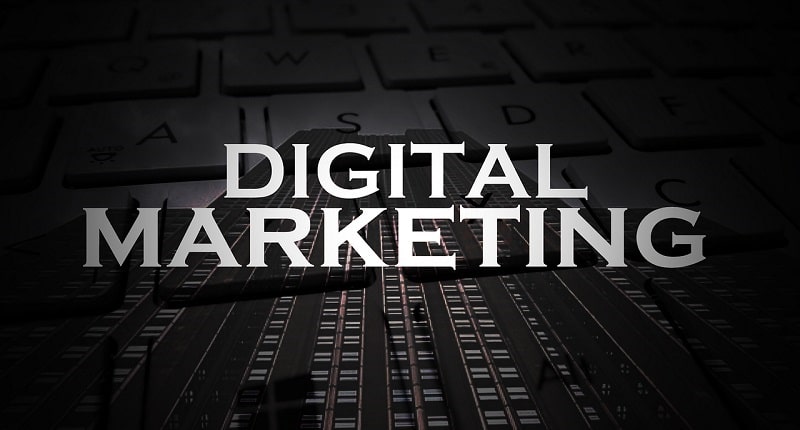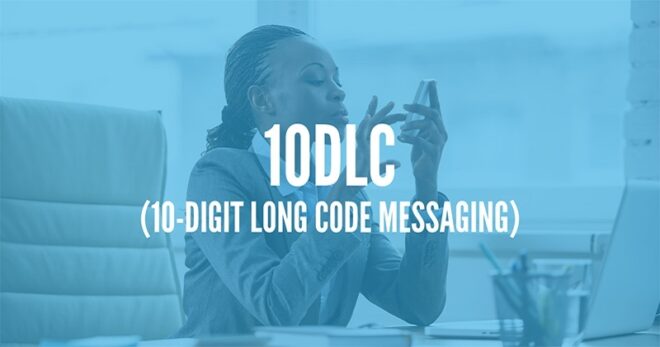Top 24 Digital Marketing Interview Questions for 2020

TechsPlace | Digital Marketing has a booming prospect globally. More and more people are getting trained in the field. Are you preparing for a Digital Marketing interview? Digital Marketing may look simple, but it also needs professional training. There are multiple reputed institutes offering quality digital marketing training. They also certify you, gives you internship and placement assistance on the course completion. The demand for skilled Digital Marketers supposed to shot up further in the coming ten years. Here we would like to help you with some crucial Digital Marketing interview questions, mostly asked by the recruiters.
List of 24 Digital Marketing Interview Questions with Answers
Q1. What is Digital Marketing?
Ans: Digital Marketing is a basic term for the targeted, measurable, and interactive marketing techniques of services and products using the digital mediums to reach the audience and convert them into loyal customers. The main objective here is to promote the brands, build brand image, and increase sales.
Q2. What is SEO?
Ans: Search Engine Optimization is commonly known as SEO. It’s a process of optimizing your website to increase traffic and visibility of a brand/product. There are two categories in SEO-
- On page-Here website is optimized as per the standards set by search engines.
- Off-page- Here, third-party websites are used to create links that redirect to your website.
Q3. What is a keyword in Digital Marketing? How Important how it improves SEO?
Ans: “Keyword” is a search term for user types on the search engine to find a service or information.
From the SEO perspective, to obtain a higher ranking, a specific keyword can optimize your content.
Q4. What are the positions where you can use keywords?
Ans: Following are the areas where keywords are used for better rankings
Website URL
Website Title
Meta Title and description
Web page content
Image Alt Text
Q5.What do you know about PPC and its campaign designing models?
Ans: PPC stands for Pay per Click. It’s a mode of paid advertisement, where the advertiser gets a particular space to place their ad on a specific platform. Here the advertiser pays the third party whenever someone clicks on the advertisement. Different publishers have different rates and different pricing/bid models.
Q6. How do bad links get characterized?
Ans: Following are the characteristics of Bad Links
Links that are not relevant to your sites
Low Page rank
Links that are exchanged
Links from Exact same anchor texts coming from multiple websites.
Links from other indexed sites apart from Google.
Links that are bought
Q7. What are Google Ads?
Ans: Google Ads is the most popular PPC Advertising Platform. It works on the Pay Per Click Model. The Platform enables the business to create the ads that appear on Search Engines and other properties.
Q8. What is Keyword Research?
Ans: Keyword Research is the process of analyzing relevant keywords and chooses the perfect keyword for the website to get traffic and leads for the website.
Q9. Why is online marketing more effective than offline marketing?
Ans: Reaching people over the digital medium is easy and scalable. We can get reports explaining the real-time performance of the campaign. Also, digital campaigns are cheaper than traditional offline marketing.
Q10: Digital Marketing is an extensive subject. Can you tell us some of its important areas?
Ans: Digital Marketing is a vast area. Which helps the marketer to engage with prospective clients.
Some of its important verticals are:
- Search Engine Optimization (SEO)
- Search Engine Marketing (SEM)
- Social Media Marketing (SMM)
- Email Marketing
- Content Marketing
- Affiliate Marketing
Q11: What are some of the best Digital Marketing tools?
Ans: When it comes to Digital Marketing, there are numerous Digital Marketing tools available in the market. Here’s a list of the best tools
Keyword Research Tools:
- Google Keyword Planner
- UberSuggest
- KwFinder
- Answer The Public
Analytics Tools:
- Google Analytics
- Kissmetrics
- SimilarWeb
Email Marketing Tools:
- MailChimp
- Aweber
- ActiveCampaign
SEO Tools:
- Ahrefs
- SEMrush
- Moz
Social Media Automation:
- HootSuite
- Buffer
- SocialPilot
Content Idea Tools
- BuzzSumo
- Google Trends
- Alltop
Graphic Designing Tools
- Canva
- Snappa
- Crello
Q12: How do you generate traffic for a website?
Ans: When it comes to generating traffic to a website, some of the popular ways are-
- Optimizing your website for Search Engine with On-Page and Off-Page SEO so that your website can rank over the Search Engines.
- Curating articles with highly encouraging CTR to show over the Search Result page.
- Curate the long-lasting SEO optimized content that adds real value to users who are visiting your website.
- Regularly update blogs on the website.
- Answer the questions over QA platforms like Quora and make sure to build links through which users visit your website.
- With Email capturing on your website, build the list of emails, and engage the users with effective Email Campaigns.
- Run ads over social media and Google Ads to attract visitors to your website.
Q13: What do you understand by AMP?
Ans: BY AMP we mean, Accelerated Mobile Pages. It’s an open-source initiative by Google. That helps the publisher to amplify the speed of the website.
Having AMP-enabled on your website will not only help the user to have an extraordinary experience over mobile but also gets your website a better ranking over Search Engines.
Q14: What are the steps that we need to follow to generate traffic using Social Media?
Ans: Simply sharing your website links over social media is not enough to get traffic over your website, and to get the results from social media, you have to attract and engage people steadily.
Following are the steps to generate traffic from Social Media:
- Posting engaging content over Social Media.
- Curating the relevant content to Social Media.
- Interacting and responding to your audience.
- Running paid ads.
Q15: How do you generate a great Call To Action (CTA)?
Ans: When you are trying to generate a great CTA, there are few things that you need to keep in mind like-
- The first-person tone that will directly talk to them.
- Use straightforward content.
- The key benefit of taking action on your CTA.
- Fear of missing out/sense of urgency.
Q16: What are the primary bidding models when it comes to Pay-Per-Click?
Ans:
Flat-rate PPC :
In flat-rate PPC, both the publisher and advertiser agree on a fixed amount paid whenever a click is received. Mostly the Publisher has a predefined plan for PPC for their network. The amount can vary as per the content as well.
Bid based PPC :
In bid-based PPC, the advertiser has to compete with other advertisers in an auction hosted by the publisher privately. In this model, the advertiser has to tell the publisher about the max amount of bid that he’s willing to pay for each click. This method is most common among Search Engines like Google, Bing, and Yahoo.
Q17: What should an effective PPC keyword be like?
Ans: An effective PPC keyword should be
Relevant: Should be relevant to the targeted keywords.
Exhaustive: It should include “long-tail keywords” apart from the most popular keywords.
Q18: What should be the best approach for an effective Pay Per Click campaign?
Ans: An effective PPC campaign approach should contain the following things-
More Keywords: By adding more relevant keywords to the campaign, we can increase the reach of our PPC Campaign.
A/B testing: By splitting up the ad groups into smaller ones, we get to know which keywords are performing well, and this can help in reducing the cost and increasing the CTR.
Keyword Review: Always make sure that you review your keywords and chuck out the highly expensive and underperforming keywords.
Negative keywords: To improve the relevancy of your ad campaign, and reduce the spent, add those non-converting keywords into negative keywords. So that when someone searches for those keywords, your website will not show up.
Q19: What is Off-Page SEO?
Ans: Off-page SEO is techniques that are used to improve the position of the website over Search Engine Results. Various SEO activities are used in Off-page like Link Building, Content Marketing, etc.
Q20: What are long-tail keywords?
Ans: A long-tail keyword is a search term that contains more than four words. A good example of a long tail keyword is: “Best Digital Marketing Blog”. Long-tail keywords are the favorite of SEO experts as they are quite easy to rank compared to single-word keywords.
Q21: What is a bad backlink?
Ans: Backlinks with the following characteristics are bad backlinks.
- Low Page Rank
- Paid links
- Spam links
- Unrelated website links
Q22: Explain White-Hat SEO techniques
Ans: White-Hat SEO is the technique that includes the methods set by Google as the guidelines. The common techniques that belong to the white-Hat SEO are Content Curation and legitimate link building from relevant niche websites.
Q23: What is a do-follow link?
Ans: A “Do-Follow” link is a link that is placed on the third-party website and is pointed toward your website. While the link points to the website, it passes the domain juice that helps your website rank over search engines.
Q24: What is Internal Linking?
Ans: The hyperlinks are used to connect different pages under the same domain. Internal Linking is a very efficient way to allow users to navigate from one page to another within the same domain.
Lastly, to grab the best job, the digital business sphere, you need to join a renowned Digital Marketing institute. Here you will find industry experts proffering the best practices of Digital Marketing regarding practical sessions and up-to-minute course modules so that you can have hands-on training and the best exposure for applications.
Navdeep Singh is an SEO Analyst, who has been working at Internet Marketing School, One of the fastest-growing digital marketing Institute in India. He is specialized in Search Engine Optimization, Affiliate Marketing, Blogging, and Facebook Ads.





